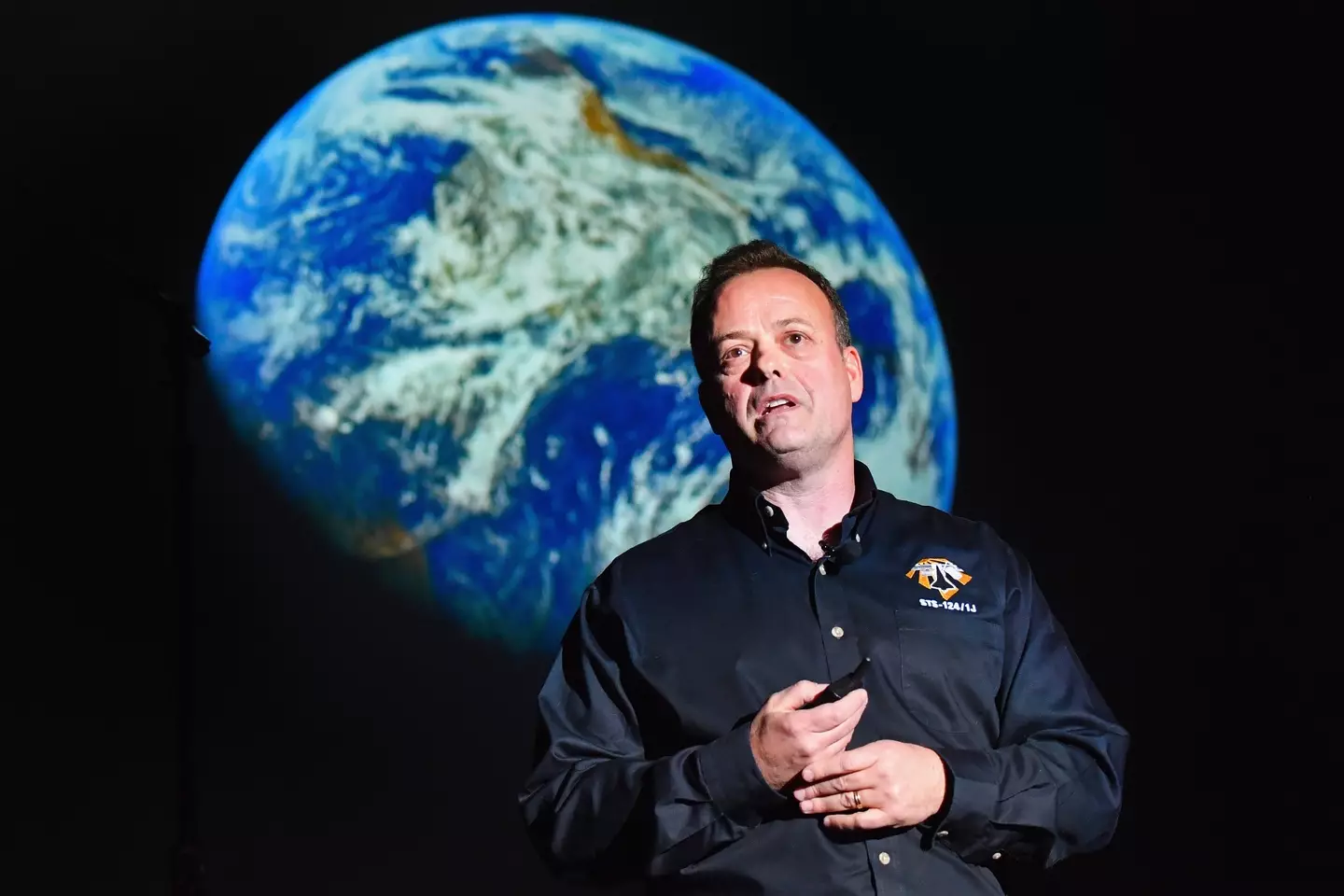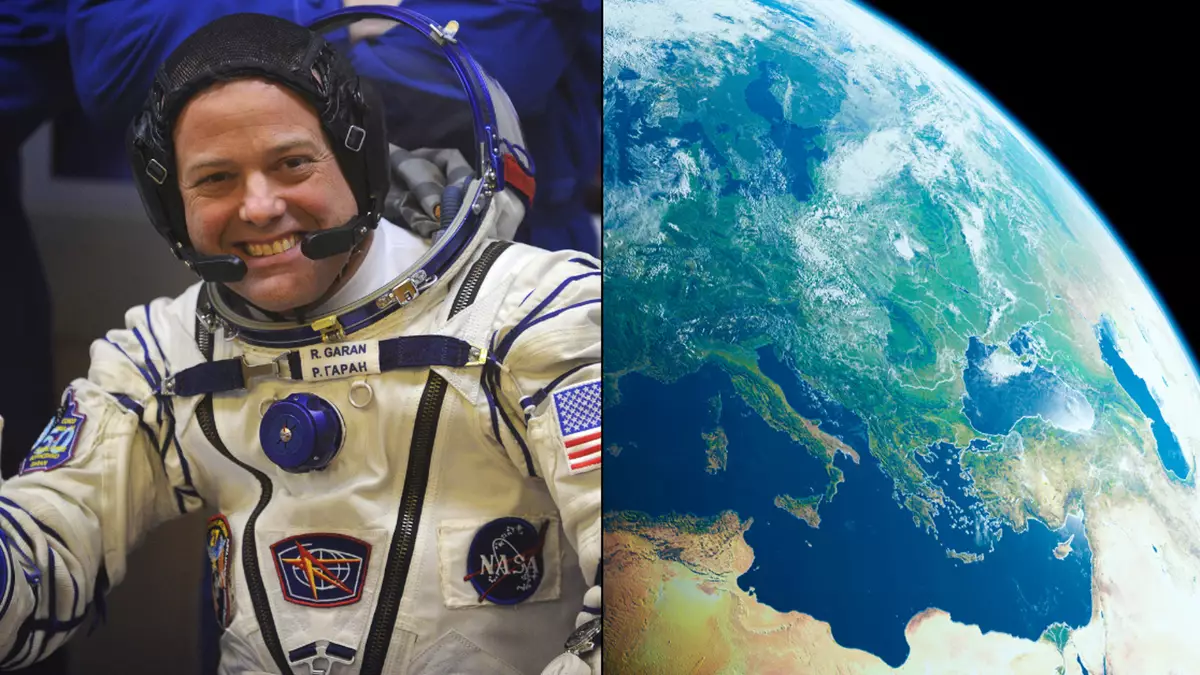You can only imagine what sort of things are hurtling through an astronaut’s head while they’ve got a birds eye view of our planet from space – but I reckon ‘that’s a long way down’ might be a leading contender.
But for former NASA space cadet Ron Garan, 62, there was only one thing on his mind…the ‘sobering realisation’ that us Earthlings are ‘living a lie’.
And no, it’s not that the Flat Earth brigade were right all along. In fact, it’s something much more compelling.
Just put yourself in Garan’s spacesuit for a second and imagine what he was thinking while he had an uninterrupted view of our globe and experienced what’s known as the ‘overview effect’.
For those who don’t know, this term described the cognitive shift that a lot of astronauts feel when taking a look at Earth while floating in space – which researchers compare to a ‘state of awe with self-transcendent qualities’.
This phenomena may trigger an ‘unexpected and overwhelming emotion’ for those who are brave enough to clamour onboard a rocket, which to be honest, shouldn’t be that surprising.
I mean, they’re seeing something which only a mere few mortals will ever get too – I’m pretty sure I’d be in my feels too.
That’s exactly the experience Garan had while spending 178 days in space, travelling more than 71 million miles in 2,842 orbits throughout his career at NASA.
With the unique perspective on the world he got from his time on the International Space Station (ISS), he drew some very interesting conclusions about our way of life while looking out of the window.
Speaking to the Big Think, the New Yorker said that he realised the things that most humans are worried about aren’t a big deal after all – but we should be a lot more concerned about global warming, deforestation and biodiversity loss.
NASA astronaut Ron Garan had quite the awakening while up in space (ALEXANDER NEMENOV/AFP via Getty Images)
Discussing what he witnessed, Garan explained: “When I looked out the window of the International Space Station, I saw the paparazzi-like flashes of lightning storms, I saw dancing curtains of auroras that seemed so close it was as if we could reach out and touch them.
“And I saw the unbelievable thinness of our planet’s atmosphere. In that moment, I was hit with the sobering realisation that that paper-thin layer keeps every living thing on our planet alive.
“I saw an iridescent biosphere teeming with life. I didn’t see the economy. But since our human-made systems treat everything, including the very life-support systems of our planet, as the wholly owned subsidiary of the global economy, it’s obvious from the vantage point of space that we’re living a lie.”
It sounds like Elon Musk needs to get that SpaceX rocket sorted pronto so we can all have a look at this for ourselves.
“It’s obvious from the vantage point of space that we’re living a lie,” Garan continued. “We need to move from thinking economy, society, planet to planet, society, economy. That’s when we’re going to continue our evolutionary process.
“There’s this light bulb that pops up where they realise how interconnected and interdependent we all are.”

The 62-year-old returned to Earth with a new perspective after experiencing the ‘overview effect’ (Erika Goldring/Getty Images)
Since his feet have been back on solid ground, Garan has passionately championed looking after our planet while encouraging people to put each other before the rat race that is modern life.
“We’re not going to have peace on Earth until we recognise the basic fact of the interrelated structure of all reality,” Garan added – and he’s not the only one with this thought process either.
Astronaut Michael Collins who flew the Apollo 11 said he was stunned at how ‘fragile’ and ‘tiny’ Earth looked, while Apollo 14’s Edgar Mitchell said the experience gave him an ‘explosion of awareness’.

Dr. Thomas Hughes is a UK-based scientist and science communicator who makes complex topics accessible to readers. His articles explore breakthroughs in various scientific disciplines, from space exploration to cutting-edge research.







